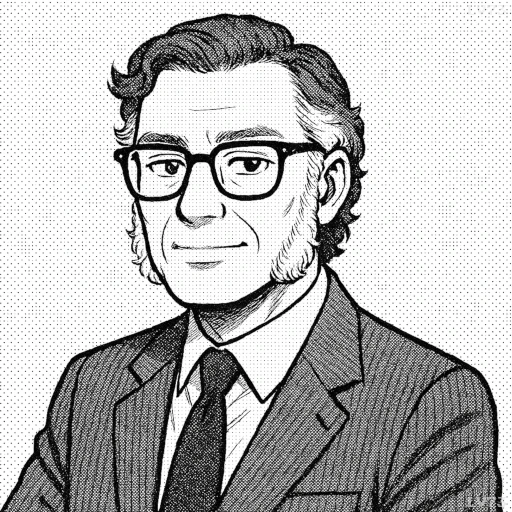“Suppose that we are wise enough to learn and know – and yet not wise enough to control our learning and knowledge, so that we use it to destroy ourselves? Even if that is so, knowledge remains better than ignorance.”

- January 2, 1920 – April 6, 1992
- Born in Russia
- Author, biochemist (professor)
table of contents
Quote
“Suppose that we are wise enough to learn and know – and yet not wise enough to control our learning and knowledge, so that we use it to destroy ourselves? Even if that is so, knowledge remains better than ignorance.”
Explanation
In this quote, Asimov explores the dual-edged nature of knowledge and human progress. He acknowledges that while the pursuit of knowledge can advance humanity, it can also be misused, leading to potentially disastrous consequences. The possibility of using knowledge to destroy oneself—through weapons of mass destruction, environmental damage, or other forms of self-sabotage—does not, in his view, negate the value of knowledge itself. Despite its potential for harm, knowledge is still preferable to ignorance. Asimov argues that the key issue is not the acquisition of knowledge but the wisdom to use it responsibly. This reflects his belief that, even with the potential for misuse, knowledge offers the possibility of progress, improvement, and problem-solving, which ignorance cannot provide.
Asimov’s concern about the potential for knowledge to be misused reflects his broader views on technology and human nature. Born in 1920, he witnessed the devastating effects of technological advancements during and after World War II, including the atomic bomb. His work often grappled with the implications of new technologies, and he frequently explored the idea that humanity’s moral and ethical capacity must evolve alongside its technological advancements. Asimov believed that the true danger lies not in knowledge itself, but in lack of foresight, ethical guidance, and self-restraint. His stories, particularly in his Robot and Foundation series, often dealt with how advanced technology must be tempered with wisdom to ensure that it serves humanity rather than harming it.
In today’s world, Asimov’s quote resonates in our ongoing debates about the ethical use of emerging technologies such as artificial intelligence, genetic engineering, and nuclear energy. While these fields hold immense potential for advancing human society, they also carry risks that could be catastrophic if misused. The balance between progress and caution, between expanding knowledge and maintaining ethical and moral control, is a central challenge of our time. Asimov’s perspective encourages us to value knowledge for its potential to improve the human condition, but also to recognize the importance of wisdom in ensuring that knowledge is applied responsibly for the benefit of all.
Would you like to share your impressions or related stories about this quote in the comments section?



